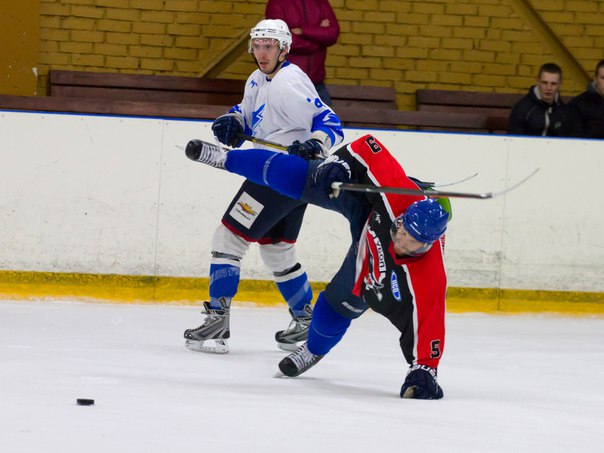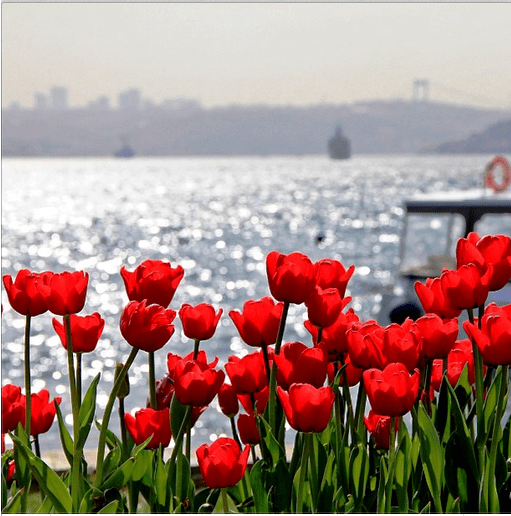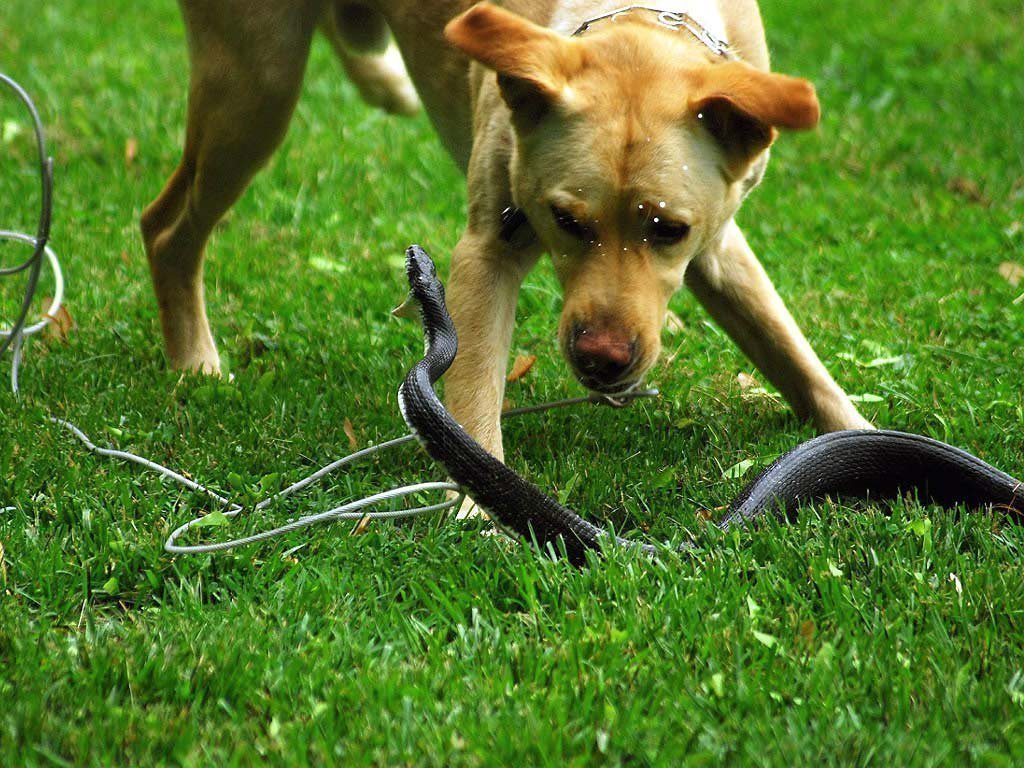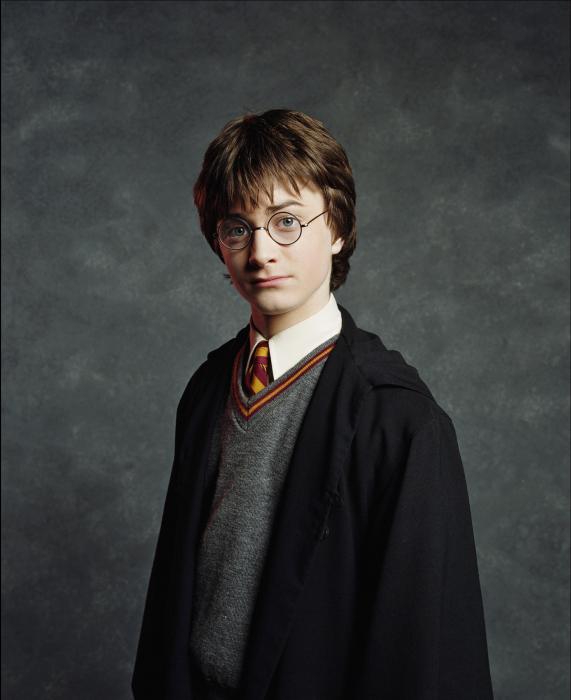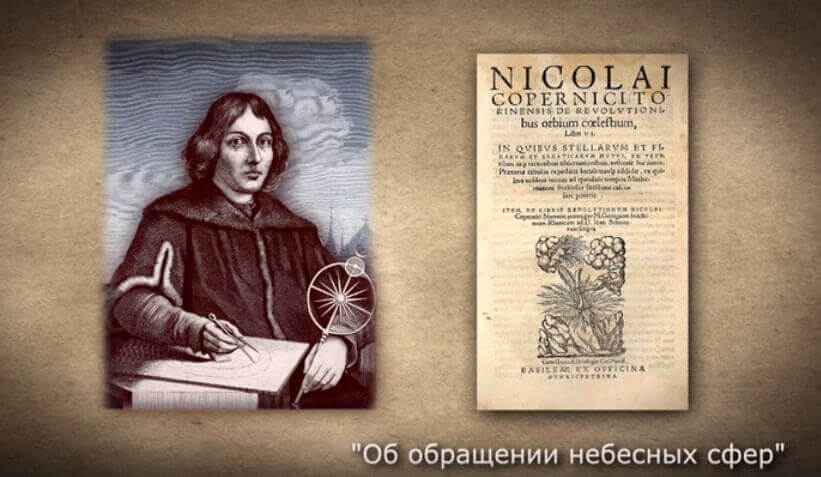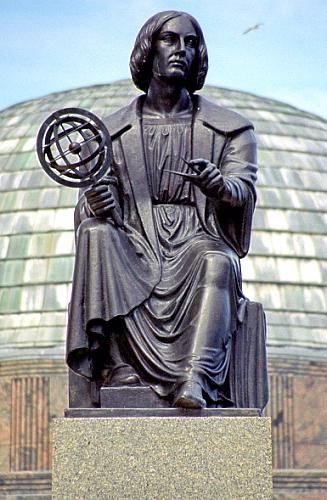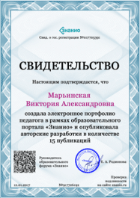Alexander Kuprin duel summary. Duel (story), plot, heroes
Alexander Ivanovich Kuprin
"Duel"
Returning from the parade ground, Lieutenant Romashov thought: "Today I won’t go: you can’t annoy people every day." Every day he sat with the Nikolayevs until midnight, but in the evening of the next day he again went to this cozy house.
“I received a letter from my lady,” said Gainan, Cheremis, sincerely attached to Romashov. The letter was from Raisa Alexandrovna Peterson, with whom they dirty and boring (and for quite some time) deceived her husband. The sugary smell of her perfume and the vulgar-playful tone of the letter caused an unbearable disgust. After half an hour, embarrassed and annoyed at himself, he knocked on Nikolaev. Vladimir Efimych was busy. For two consecutive years, he failed the exams at the academy, and Alexandra Petrovna, Shurochka, did everything so that the last chance (only allowed to enter three times) was not missed. Helping her husband get ready, Shurochka had already learned the whole program (only ballistics was not given), Volodya was moving very slowly.
With Romochka (as she called Romashov), Shurochka began to discuss a newspaper article about the fights recently permitted in the army. She sees in them a harsh need for Russian conditions. Otherwise, a cheater like Archakovsky or a drunkard like Nazansky will not get out among the officers. Romashov did not agree to enlist Nazansky in this company, who said that not everyone is given the ability to love, like talent. Once this person was rejected by Shurochka, and her husband hated the lieutenant.
This time Romashov stayed near Shurochka until they started talking that it was time to sleep.
At the next regimental ball, Romashov had the courage to tell his mistress that it was all over. Petersonyha vowed revenge. And soon Nikolaev began to receive anonymous letters with hints of the special relations of the second lieutenant with his wife. However, ill-wishers were lacking in addition to her. Romashov did not allow the non-commissioned companies to fight and resolutely objected to the "dentists" from among the officers, and captain Sliva promised that he would submit a report to him if he would allow the soldiers to beat.
Romashov and his superiors were dissatisfied. In addition, it was getting worse with money, and already the barman did not let out even cigarettes. It was bad at heart because of a feeling of boredom, the meaninglessness of service and loneliness.
In late April, Romashov received a note from Alexandra Petrovna. She recalled their common name day (Tsarina Alexandra and her faithful knight George). Borrowing money from Lieutenant Colonel Rafalsky, Romashov bought perfume and at five o'clock was already with the Nikolaevs. The picnic was noisy. Romashov sat next to Shurochka, almost did not listen to Osadchy’s ranting, toasts and flat jokes of officers, experiencing a strange state, like a dream. His hand sometimes touched Shurochkin’s hand, but neither he nor she looked at each other. Nikolaev, it seems, was unhappy. After the feast, Romashov wandered into the grove. Footsteps were heard from behind. It was Shurochka. They sat on the grass. “I'm in love with you today,” she admitted. Romoch dreamed about her in a dream, and she really wanted to see him. He began to kiss her dress: "Sasha ... I love you ..." She admitted that she was concerned about his closeness, but why was he so pathetic. They have common thoughts, desires, but she must abandon him. Shurochka got up: let's go, we will be seized. On the way, she suddenly asked him not to be with them anymore: her husband was besieged by anonymous letters.
In mid-May, a review was held. The corps commander traveled around the companies lined up on the parade ground, watched them march, how they performed rifle techniques and rebuilt to repel unexpected cavalry attacks, and was not pleased. Only the fifth company of Captain Stelkovsky, where they were not tormented by shagistics and did not steal from a common boiler, earned praise.
The worst happened during the ceremonial march. Even at the beginning of the show, Romashov seemed to be caught in some kind of joyful wave, as if he felt like a particle of some formidable force. And now, going ahead of his half-life, he felt like a subject of general admiration. Shouts from behind made him turn around and turn pale. The system mixed up - and precisely because he, second lieutenant Romashov, ascending in dreams to the heavens, all this time shifted from the center of the rows to the right flank. Instead of rapture, he had public shame. To this was added an explanation with Nikolaev, who demanded to do everything to stop the flow of anonymous letters, and also not to be in their house.
Going through what happened, Romashov quietly walked to the railway track and in the darkness saw the soldier Khlebnikov, the subject of bullying and ridicule in the company. “Did you want to kill yourself?” He asked Khlebnikov, and the soldier, choking on sobs, said that he was being beaten, laughing, the platoon extorting money, and where to get it. And the teaching is beyond his power: from childhood, a hernia rummages.
Romash suddenly found his grief so trifling that he embraced Khlebnikov and spoke of the need to endure. From that time on, he understood: faceless companies and regiments consist of such people suffering from their grief and having their own fate, the Khlebnikovs.
The forced distance from the officer community allowed us to focus on our thoughts and find joy in the very process of the birth of thought. Romashov saw more clearly that there were only three worthy callings: science, art, and free physical labor.
At the end of May, a soldier hanged himself in Osadchy’s company. After this incident, hard drinking began. At first they drank in the congregation, then they moved to Schleifershe. This is where the scandal erupted. Bek-Agamalov threw a saber at those present (“Everything is out of here!”), And then his anger turned to one of the young ladies who called him a fool. Romashov intercepted his hand: “Beck, you won’t hit a woman, you will be ashamed all your life.”
The gulba in the regiment continued. In the meeting, Romashov found Osadchy and Nikolaev. The latter pretended not to notice him. They sang around. When silence finally reigned, Osadchy suddenly sucked a requiem for suicide, alternating it with dirty curses. Romashova was seized with rage: “I will not allow it! Silence! ”In response, for some reason, Nikolaev with a warped face of anger shouted to him:“ Shame the regiment yourself! You and the Nazans are different! "" But what does the Nazansky have to do with it?
Or do you have reasons to be unhappy with him? ”Nikolaev swung, but Romashov managed to throw out the rest of the beer in his face.
On the eve of the meeting of the officer’s court of honor, Nikolaev asked the enemy not to mention the name of his wife and anonymous letters. As expected, the court determined that the quarrel could not be ended by reconciliation.
Romashov spent most of the day before the fight at Nazansky, who urged him not to shoot. Life is an amazing and unique phenomenon. Does he really adhere to the military class? Does he really believe in the highest sense of the army order so that he is ready to stake his very existence at stake?
In the evening, at home, Romashov found Shurochka. She began to say that she spent years to build a husband’s career. If Romochka refuses to fight for the sake of love for her, then all the same there will be something dubious in this and Volodya will almost certainly not be admitted to the exam. They must certainly shoot, but not one of them should be injured. The husband knows and agrees. Saying goodbye, she threw her hands around his neck: “We will not see each other again. So we will not be afraid of anything ... Once ... we will take our happiness ... "- and clung her hot lips to his mouth.
In an official report, the regimental commander, Staff Captain Ditz, reported the details of the duel between Lieutenant Nikolayev and Second Lieutenant Romashov. When, on a command, the opponents met each other, Lieutenant Nikolaev wounded the second lieutenant in the right upper abdomen with a fired shot, and he died seven minutes later from internal hemorrhage. The testimony of the junior doctor of Znojko was attached to the report.
Second Lieutenant Romashov decided not to go to Nikolaev today. Batman brought letters "from the mistress." With Raisa Peterson, they have been dirty and boring for a long time deceiving her husband. The vulgar tone of the letter, the cloying smell of perfume were disgusting. And Romashov went to Nikolaev. Vladimir was preparing for exams at the academy, and Shurochka helped him. She had already learned the whole program, but her husband could not cope.
They discussed the news of allowing fights in the army. Shurochka sees the need for them, otherwise there will be a cheater and drunks.
At the regimental ball, Romashov told his mistress that the romance was over. Raisa vowed revenge. Anonymous letters began to come to Nikolaev with hints of Romashov and Shurochka. Enemies were enough: the lieutenant forbade the Unters to fight and condemned the dents of the officers. He threatened captain Sliva with a report if he allowed the soldiers to be beaten.
The authorities are dissatisfied with Romashov, everything is worse with money. Bad from loneliness, boredom, senselessness of service.
On the day of common name day, Romashov, taking money, bought perfume, and came to Nikolaev. The picnic was noisy. Romashov and Shurochka sat next to him. His hand touched Shurochkoy hand. Then Romashov wandered into the grove. Shurochka followed him. She asked not to come anymore: her anonymous letters were written to her husband. They have common desires, but she must refuse.
During the show on the march, a terrible thing happened: going ahead of his half-life and experiencing joy, Romashov knocked down a formation. Replaced the delight came public shame. An explanation was also added with Nikolaev: he demanded to stop the flow of anonymous letters, not to visit them.
Romashov, thinking, walked to the railway, made out the soldier Khlebnikov. Sobbing, he said how they laugh at him, beat him, how the platoon demands money, how difficult the teachings are for him with a hernia. Romashov found his grief frivolous.
Once in a meeting Romashov found Osadchy and Nikolaev. The siege dragged on the requiem, interspersing it with curses. Romashova screamed furiously: be silent! Nikolaev swung, Romashov poured beer in his face.
The officer court of honor ruled: a duel is necessary.
In the evening Shurochka came. She talked about the years spent on her husband's career. If Romashov refuses to fight - the spot will be on the honor of her husband. He will not be accepted to the academy. She allegedly spoke with her husband - no one should even be injured. She suddenly fell to him: once we take our happiness ...
The official report on the duel read: Nikolaev wounded Romashov in the stomach, seven minutes later he died. Attached and the testimony of a junior doctor.
Works
The author and his characters in the novel "Duel" by A. I. Kuprin The ideological and artistic originality of the novel “Duel” by A. Kuprin Love test (according to the novel “Duel” by A. I. Kuprin) CRITICAL IMAGE OF THE ARMENIAN SOCIETY IN THE TALK OF A. I. KUPRIN The world of human feelings in prose of the early twentieth century Moral and social problems in the novel “Duel” by A. Kuprin. Moral and social problems of Kuprin’s novel “The Duel” The Moral Searches of Kuprin's Heroes on the Example of the Heroes of the Duel Tale A.I. Kuprina "Duel" as a protest against depersonalization and spiritual emptiness Duel in the "Duel" (based on the story of the same name by A.I. Kuprin) The duel of violence and humanism Debunking the romance of military service (based on the novel “The Duel”) Russia in the works of A. I. Kuprin (based on the novel “The Duel”) Strength and weakness of second lieutenant Romashov’s nature (based on the novel “The Duel” by A. I. Kuprin) The power of love (according to the novel “Duel” by A. I. Kuprin) The meaning of the title and the problems of the novel “Duel” by A. I. Kuprin The meaning of the title of the novel “Duel” by A. I. Kuprin Class morality of officers on the story Kuprin "Duel"The sixth company is finishing classes and junior officers are trying to compete, who cleverly cuts down a scarecrow of clay. Lieutenant Grigory Romashov begins. He knows little of the matter, so nothing comes of it. Romashov spends long evenings in Nikolayev’s house, this time he promises not to come, but does not hold back and breaks the promise.
A letter from Raisa Peterson awaits him at home, together they rudely and brazenly deceive her husband. All this bothers Gregory. After some time, Romashov still goes to Nikolaev. There, he and Shurochka are talking about a newspaper article.
The next day, he severs all relations with Peterson, the girl is unhappy and threatens to take revenge. After that, anonymous notes are sent to Romashov, in which dirty rumors are written. Yes, and with money, Gregory is ill, in the buffet they no longer lend. And also the common name day of Alexandra Petrovna. He buys perfume, again borrowing money for this, at a holiday he sits next to Shurochka and strokes her leg. Then he goes with her to the grove and talks about love. Everything again does not go as we would like - on the march Romashov knocks down the line, in the Nikolayev’s house he is no longer welcome. Thinking of his troubles, he accidentally stumbles upon a mocked soldier. He asks him about thoughts of killing himself, but he only talks about his troubles.
After this incident, Gregory changes and finds solitude in science, art.
One case - the suicide of a soldier, prompts Nikolayev's booze, he sees Romashov and a fight is being fought between them. Everything comes to court. This is followed by a duel. Shurochka persuades Romashov to a duel in which no one will be injured, otherwise her husband will not pass the exam.
In a duel, Nikolaev kills Romashov, and Shurochka leaves forever after what happened.
The story teaches readers not to retreat from military duty and not to succumb to vulgarity, because it can end badly - even a duel. The hero paid for his mistakes.
Read detailed summary of Kuprin's Duel
He is very uncertain about his sword and for this reason he does not succeed.
Kuprin says that Romashov likes to visit the house of Nikolayev. He is drawn there like a magnet. When Romashov appears at home, he sees a letter from his mistress Peterson. After reading the letter, he becomes disgusted and disgusting.
Thirty minutes pass. Romashov again with the Nikolaevs. Vladimir Nikolaev himself is busy - he is preparing to enter the academy. It is worth noting that the Academy gives three attempts for applicants, but Vladimir failed two of them. The wife, Shura Nikolaev, tries to do everything for her husband to do. She dreams of breaking out of this wilderness.
Shura and Romashov are discussing an article in the newspaper about fights that have recently been legalized in the army. Shura believes that this method is effective in eradicating drunkenness and playing card games among officers. Their conversation concerns the person of officer Nazansky. Shura believes that he is a drunkard, and Romashov, on the contrary, justifies him. It becomes late and Romashov leaves the hospitable house of Nikolayev.
In the dwelling Romashov sees another letter from Peterson. The letter speaks of revenge, of jealousy.
After some time, a ball takes place, during which Romashov tells Peterson about the severance of their relationship. All her nature breathes revenge. She scribbles anonymous letters with threats and ambiguous allusions to his relationship with Shura Nikolaeva. Romashov has many ill-wishers, so I’m not completely sure who the author of the anonymous letters really is.
They say trouble alone does not come. So with Romashov. They displeased the command. The money is over, but no one lends. The officer’s heart becomes gray and sad.
April is almost over. At this point, Romashov receives a note from Shura Nikolaeva with a reminder of their common name day. Romashov lends money, buys perfume as a gift and goes to Nikolaev. There, in a noisy company, he sits next to the hero of the occasion and feels sympathy for her.
Name day passed. After Romashov goes to the grove, and Alexandra follows him and even tells him about his love. But they cannot be together ...
March. Romashov, having dreamed, knocks down the whole company and a great shame falls on his lot. In addition, Vladimir Nikolaev speaks tough to him about anonymous letters and refuses him from the house.
After a conversation, Romashov wanders around the garrison for a long time, until he comes across a soldier who is the object of general ridicule and wants to kill himself. The soldier tells Romashov about his misadventures and then the officer understands that his troubles are nothing.
After this memorable meeting, Romashov changed, began to avoid the company of officers. May ended in a terrible event - in one of the mouths of a soldier he was taking his own life. And officers, including Nikolaev, drink. Romashova is just enraging.
The officer court appoints a duel between the officers. Nazansky is trying to dissuade Romashov from a duel. In the evening, Shura arrives and asks Romashov not to refuse the fight, because this will drop a shadow on her husband's future military career.
The fight took place. As a result, Romashov died from a wound in the stomach.
Kuprin's work teaches that the interaction of the individual and the public mass is always relevant. The main idea of \u200b\u200bthe “Duel” is the writer's collision with the reality of life.
Picture or drawing Duel
War. The year is 1942. The Red Army was retreating at that moment. Refugees tried to cross over Donets, trucks drove, and even herds walked. And still could not cross. Then, realizing that there is no way out
Summary of the story A.I. Kuprina "Duel" for the reader's diary.
Evening classes in the sixth company are coming to an end. Young soldiers are confused and do not understand what the officers want. In the third platoon, Mukhamedzhinov, a Tatar soldier who barely understands Russian, is baffled, responds to all orders: “I'll kill you!” The younger officers met to chat and smoke. There are three of them: Lieutenant Vetkin, Second Lieutenant Romashov and Second Lieutenant Lbov. They do not understand why exhaust the soldiers before the show.
Lieutenant Bek-Agamalov arrives, the news reports: the commander demands that the soldiers be taught how to cut clay effigies. Officers tell each other about cases of unexpected massacres on the spot and that they almost always went unpunished. Beck says that chopping a person is a complex art. Lbov invites everyone to try on a scarecrow. It’s only Beck who can chop a scarecrow.
Ride commander, Colonel Shulgovich. He bypasses platoons, stops in front of a young soldier Sharafutdinov, a Tatar who cannot clearly answer his questions, does not know the name of his regimental commander. Romashov stands up for his soldier and receives four days of house arrest for misunderstanding military discipline. Captain Sliva was also reprimanded for Romashov. In the words of template novels, Romashov says out of habit about himself in the third person: “His kind, expressive eyes turned into a cloud of sadness ...”
The soldiers went to apartments. The parade ground was empty. Romashov wants to go to the station, he likes to go there in the evenings. But he changes his mind and just walks along the highway, remembering the scene on the parade ground, his sense of resentment. But he is also hurt because they shouted at him in the same way as he sometimes shouted at the soldiers: in this he sees something humiliating for himself. Romashov vindictively dreams of how he enters the academy, makes a career, brilliantly maneuvers in his regiment, goes as a military spy to Germany, and there he will be shot, but he will not tell them either his name or nationality, so that everything would be worth the conclusion.
For a moment he returns to reality, but again dreams, now - about a bloody war with Prussia and Austria, where he is braver than Colonel Shulgovich.
Romashov catches himself on the fact that he is already running, he ran to the house, wonders what nonsense they get into his head. At home he lies on the bed, looking at the ceiling, not thinking about anything. Then he asks the batman Gaynan if Nikolaev was not inviting him. Gaynan gives a negative answer.
Batman-Cheremis in a simple relationship with his master. Romashov talking with Gaynan about his gods, about how originally, having eaten a piece of bread from the tip of a checker, he took the oath. The second lieutenant decides not to go to Nikolayev today, but this is not the first time he has made this promise. He is in love with Nikolaev’s wife, Shurochka.
Having received an apartment, Romashov was full of plans, bought books, but for nine months they have been lying in the dust, and Romashov drinks vodka, has a boring relationship with a regimental lady, is burdened by service, comrades and his own life. Batman recalls that Romashov’s mistress sent a letter. She invites him to her, but the second lieutenant is disgusted by the sugary smell of a scented letter and by his vulgarly playful tone. Romashov understands that today he will go to Nikolaev again.
Gaynan asks to give him a bust of Pushkin, which Romashov was going to throw. The second lieutenant agrees and goes to Nikolaev, but they did not wait for him there. Vladimir is busy, preparing for his last attempt to enter the academy. Shurochka tells Romashov that she cannot stay here, she needs society, clever interlocutors. Volodya must go to the General Staff, then they will break out of "this slum." She cries, then asks the second lieutenant if she is good, laughs at him. Shurochka calls Romashov Romochka, asks if he had read in the newspapers about the army duel. She believes that fights are a reasonable thing, because officers are for war, and they can show their main qualities in peacetime only in duels. But the conditions in the duel are like on the death penalty: fifteen steps of the distance, and fight to a severe wound. She sees a need for them, otherwise a cheater like Archakovsky or a drunkard like Nazansky will not be brought out. Romashov does not agree with her, but sits and listens until she is going to sleep. That evening, Romashov realizes that he is only tolerated by the Nikolayevs.
In revenge, he goes to Nazansky. They talk for a long time. Nazansky says he hates military service, he wants to think about lofty matters, about love. He says that he loved one girl, but she fell out of love for what he drinks. He reads her only letter, and the second lieutenant recognizes Shurochka’s handwriting.
Nazansky understands that Romashov recognized the handwriting and is also in love with Shurochka. Coming to himself, he reads a new note from Peterson. She wrote about deception, that her heart was broken and she would take revenge.
At the next ball, Romashov tells his mistress that between them everything is over. Petersonikha is angry and swears revenge. Soon, anonymous letters began to come to Nikolaev with a hint that Romashov was flirting with his wife. The bosses are also dissatisfied with Romashov; he more than ever feels the senselessness of service and loneliness.
In the morning, overslept Romashov is late for classes. Captain Plum does not miss the opportunity to insult the young officer before the formation. Platoon classes begin. Non-commissioned officer Shapovalenko, subordinate to Romashov, shouts and swings at Khlebnikov, a short, weak, clogged, stupid soldier. Romashov pulls Shapovalenko. Plum discusses in the presence of several junior officers about military discipline, about the former order, when the commander could beat a soldier without hindrance. Romashov objects that the assault is inhuman, and promises to file a report on Plum if he continues to dissolve his hands.
At the end of April, Shurochka invites Romashov to a common name day for a picnic. Borrowing money from Rafalsky, Romashov bought perfume as a gift. He sits on a picnic next to Shurochka, their hands sometimes touching. Nikolaev looks unhappy. After the feast, Romashov goes to the grove, Shurochka comes after him and says that today she is in love with him and saw him in a dream. He kisses her dress, declares his love. She replies that she is also in love, but he is pathetic, she must refuse him, because she thinks that he will not achieve anything in life. She does not love her husband, does not want a child, but assures that she will not cheat on her husband until she finally abandons him. On the way back, she asks Romashov not to come to them anymore: her husband is besieged by anonymous letters. Nikolaev takes his wife aside and angrily reprimands her. She answers him "with an indescribable expression of indignation and contempt."
The corps commander is dissatisfied with the review. Only the fifth company of Captain Stelkovsky earned praise.
During the ceremonial march, Romashov experienced public disgrace: he dreamed and mixed up, shifting from the center of the rows to the right flank. It seemed to him that the general would notice and praise the “handsome lieutenant” Romashov. The second lieutenant decides that he is disgraced forever and he can only shoot himself. Captain Plum requires him to report to be transferred to another company.
On the way back to the camp, Romashov sees how the sergeant beats Khlebnikov, who fell on the parade ground in the dust, and does not find the strength to stand up for the soldier. The met Nikolaev demands that he do everything to stop the flow of anonymous letters. Romashov goes to the meeting, but even from behind the door he hears the officers discuss his failure today, and Captain Plum directly states that Romashov will never turn out to be an officer. Romashov turns to God with a rebuke that he has turned his back on him. Thinking about all this, Romashov went to the railway and in the dark saw the soldier Khlebnikov, the subject of ridicule and bullying.
Romashov understands that the soldier also planned to take his own life. Khlebnikov cries, having buried Romashov in his lap, tells that he is being beaten and laughing at him, the platoon extorts money that has nowhere to take. The teachings for him are also torture: since childhood, he has been ruptured by a hernia. Compared to Khlebnikov’s grief, his own grief seems like a trifle to Romashov. He hugs the soldier and says that we must endure. Romashov for the first time thinks about the fate of thousands of such Khlebnikovs, whom he had never considered persons before.
Since this night in Romashov there was a deep mental breakdown. Moving away from the society of officers, he invites Khlebnikov to him, patronizes him, and for the first time thinks about civilian professions. Romashov sees that there are only three worthy callings - science, art, and free physical labor.
At the end of May, a soldier hanged himself in Osadchy’s company, after which unbridled drunkenness began. They drank in the meeting, then there was a scandal at Shleifersha. Bek-Agamalov rushed with a saber at those present, then at the young lady who called him a fool. Romashov intercepted his hand, saying that he would be ashamed that he had hit a woman. Beck thanks him for that.
In the meeting, Romashov finds Osadchy and Nikolaev. The latter defiantly does not notice Romashov. The besieger sings a memorial service for a suicide soldier, alternating it with dirty curses. Romashova is enraged: “I will not allow it! Silence! ”In response, Nikolaev shouted that Romashov and Nazansky dishonored the regiment. “But what does the Nazansky have to do with it?” Or do you have reasons to be unhappy with him? ”Asks Romashov. Nikolaev swings, Beck tries to drag him away, but Romashov spills beer in the face of Nikolaev. An officer court of honor has been appointed. Nikolaev asks Romashov not to talk about his wife and anonymous letters. The court determines that reconciliation is impossible.
Before the fight Nazansky convinces Romashov not to shoot, to resign, because life is unique and amazing. Nazansky is perplexed: does Romashov really believe in the highest sense of the army order so much that he is ready to say goodbye to his life? In the evening, Shurochka comes to Romashov. She talks about the years spent on her husband’s career and says: if Romashov refuses a duel, Volodya will not be allowed to take the exam. They must shoot, but not so as to injure each other, the pistols will not be loaded. Her husband agrees to this. Shurochka hugs Romashov, kisses him and offers to take happiness, because they will no longer see each other. She is given to her beloved.
Headquarters-captain Dietz informs the regimental commander of the details of the duel in the report. Nikolaev wounded Romashov in the stomach, and seven minutes later he died from internal hemorrhage. The testimony of the junior doctor Znojko is attached to the report. Nikolaev understood where his wife was, and loaded the gun.
Year of writing:
1905
Reading time:
Description of the work:
The story “The Duel” was written by Alexander Kuprin. For the first time, it became available to readers in 1905. This work is the main in the work of Kuprin. The plot of the story describes how the conflict developed between Romashov and a senior officer. Kuprin dedicated the story “The Duel” to Gorky, with whom he had friendly relations.
Read on our website a brief summary of the novel “The Duel”.
Summary of the story
Duel
Returning from the parade ground, Lieutenant Romashov thought: "Today I won’t go: you can’t annoy people every day." Every day he sat with the Nikolaevs until midnight, but in the evening of the next day he again went to this cozy house.
“I received a letter from my lady,” said Gainan, Cheremis, sincerely attached to Romashov. The letter was from Raisa Alexandrovna Peterson, with whom they dirty and boring (and for quite some time) deceived her husband. The sugary smell of her perfume and the vulgar-playful tone of the letter caused an unbearable disgust. After half an hour, embarrassed and annoyed at himself, he knocked on Nikolaev. Vladimir Efimych was busy. For two consecutive years, he failed the exams at the academy, and Alexandra Petrovna, Shurochka, did everything so that the last chance (only allowed to enter three times) was not missed. Helping her husband get ready, Shurochka had already learned the whole program (only ballistics was not given), Volodya was moving very slowly.
With Romochka (as she called Romashov), Shurochka began to discuss a newspaper article about the fights recently permitted in the army. She sees in them a harsh need for Russian conditions. Otherwise, a cheater like Archakovsky or a drunkard like Nazansky will not get out among the officers. Romashov did not agree to enlist Nazansky in this company, who said that not everyone is given the ability to love, like talent. Once this person was rejected by Shurochka, and the husband hated the lieutenant.
This time Romashov stayed near Shurochka until they started talking that it was time to sleep.
... At the next regimental ball, Romashov had the courage to tell his mistress that it was all over. Petersonyha vowed revenge. And soon Nikolaev began to receive anonymous letters with hints of the special relations of the second lieutenant with his wife. However, ill-wishers lacked in addition to her. Romashov did not allow the non-commissioned fighters and resolutely objected to the “dentists” from among the officers, and captain Sliva promised that he would submit a report to him if he would allow the soldiers to beat.
Romashov was displeased with the authorities. In addition, it was getting worse with money, and already the barman did not let out even cigarettes. It was bad at heart because of a feeling of boredom, the meaninglessness of service and loneliness.
In late April, Romashov received a note from Alexandra Petrovna. She recalled their common name day (Tsarina Alexandra and her faithful knight George). Borrowing money from Lieutenant Colonel Rafalsky, Romashov bought perfume and was at Nikolayev's at five o’clock, the picnic turned out to be noisy. Romashov sat next to Shurochka, almost did not listen to Osadchy’s ranting, toasts and flat jokes of officers, experiencing a strange state, like a dream. His hand sometimes touched Shurochkin’s hand, but neither he nor she looked at each other. Nikolaev, it seems, was unhappy. After the feast, Romashov wandered into the grove. Footsteps were heard from behind. It was Shurochka. They sat on the grass. “I'm in love with you today,” she admitted. Romoch dreamed about her in a dream, and she really wanted to see him. He began to kiss her dress: "Sasha ... I love you ..." She admitted that she was concerned about his closeness, but why was he so pathetic. They have common thoughts, desires, but she must abandon him. Shurochka got up: let's go, we will be seized. On the way, she suddenly asked him not to be with them anymore: her husband was besieged by anonymous letters.
In mid-May, a review was held. The corps commander traveled around the companies lined up on the parade ground, watched them march, how they performed rifle tricks and rebuilt to repel unexpected cavalry attacks, and was not pleased. Only the fifth company of Captain Stelkovsky, where they were not tormented by shagistics and did not steal from a common boiler, earned praise.
The worst happened during the ceremonial march. Even at the beginning of the show, Romashov seemed to be caught in some kind of joyful wave, as if he felt like a particle of some formidable force. And now, going ahead of his half-life, he felt like a subject of general admiration. Shouts from behind made him turn around and turn pale. The system mixed up - and precisely because he, second lieutenant Romashov, ascending in dreams to the heavens, all this time shifted from the center of the rows to the right flank. Instead of rapture, public shame fell on him. To this was added an explanation with Nikolaev, who demanded to do everything to stop the flow of anonymous letters, and also not to be in their house.
Going through what happened, Romashov quietly walked to the railway track and in the darkness saw the soldier Khlebnikov, the subject of bullying and ridicule in the company. “Did you want to kill yourself?” He asked Khlebnikov, and the soldier, choking on sobs, said that he was being beaten, laughing, the platoon extorting money, and where to get it. And the teaching is beyond his power: from childhood, a hernia rummages.
Romashov suddenly felt his grief so trifling that he hugged Khlebnikov and spoke of the need to endure. From that time on, he understood: faceless companies and regiments consist of such people suffering from their grief and having their own fate, the Khlebnikovs.
The forced distance from the officer community allowed us to focus on our thoughts and find joy in the very process of the birth of thought. Romashov saw more clearly that there were only three worthy callings: science, art, and free physical labor.
At the end of May, a soldier hanged himself in Osadchy’s company. After this incident, hard drinking began. At first they drank in the congregation, then they moved to Schleifershe. This is where the scandal erupted. Bek-Agamalov threw a saber at those present (“Everything is out of here!”), And then his anger turned to one of the young ladies who called him a fool. Romashov intercepted his hand: “Beck, you won’t hit a woman, you will be ashamed all your life.”
The gulba in the regiment continued. In the meeting, Romashov found Osadchy and Nikolaev. The latter pretended not to notice him. They sang around. When silence finally reigned, Osadchy suddenly pulled a requiem for suicide, alternating it with dirty curses. Romashova was seized with rage: “I will not allow it! Silence! ”In response, for some reason, Nikolaev with a warped face of anger shouted to him:“ Shame the regiment yourself! You and the Nazans are different! "" But what does the Nazansky have to do with it?
Or do you have reasons to be unhappy with him? ”Nikolaev swung, but Romashov managed to throw out the rest of the beer in his face.
On the eve of the meeting of the officer’s court of honor, Nikolaev asked the enemy not to mention the name of his wife and anonymous letters. As expected, the court determined that the quarrel could not be ended by reconciliation.
Romashov spent most of the day before the fight at Nazansky, who urged him not to shoot. Life is an amazing and unique phenomenon. Does he really adhere to the military class? Does he really believe in the highest sense of the army order so that he is ready to stake his very existence at stake?
In the evening, at home, Romashov found Shurochka. She began to say that she spent years to build a husband’s career. If Romochka refuses to fight for the sake of love for her, then all the same there will be something dubious in this and Volodya will almost certainly not be admitted to the exam. They must certainly shoot, but not one of them should be injured. The husband knows and agrees. Saying goodbye, she threw her hands around his neck: “We will not see each other again. So we will not be afraid of anything ... Once ... we will take our happiness ... "- and clung her hot lips to his mouth.
... In the official report to the regimental commander, Captain Ditz reported the details of the duel between Lieutenant Nikolayev and Lieutenant Romashov. When, on a command, the opponents met each other, Lieutenant Nikolaev wounded the second lieutenant in the right upper abdomen with a shot and he died seven minutes later from internal hemorrhage. The testimony of the junior doctor of Znojko was attached to the report.
You have read the summary of the novel “The Duel”. We also suggest that you visit the Briefs section to familiarize yourself with other popular writers.
Please note that the summary of the story “The Duel” does not reflect the full picture of events and characterization of the characters. We recommend that you read the full version of the work.
The story “The Duel” was published in 1905. This is a story about the conflict of a humanistic worldview and violence that flourished in the army of that time. The story reflects the vision of army orders by Kuprin himself. Many of the characters in the work are characters from the writer’s real life that he encountered during his service.
Yuri Romashov, a young second lieutenant, hard going through universal moral decay reigning in army circles. He often visits Vladimir Nikolaev, in whose wife Alexander (Shurochka) he is secretly in love. Romashov also maintains a vicious relationship with Raisa Peterson, the wife of his colleague. This romance ceased to give him any joy, and one day he decided to break off his relationship. Raisa set out to take revenge. Soon after their breakup, someone began to bombard Nikolaev with anonymous letters with hints of a special connection between his wife and Romashov. Because of these notes, Shurochka asks Yuri not to visit their house anymore.
However, the other lieutenants had other troubles. He did not allow non-commissioners to arrange fights, constantly quarreled with officers supporting moral and physical violence against wards, which caused discontent of the command. The financial situation of Romashov also left much to be desired. He is lonely, service for him is no longer meaningful, bitter and sad at heart.
During the ceremonial march, the second lieutenant had to endure the most terrible shame in his life. Yuri simply dreamed about and made a fatal mistake, breaking the order.
After this incident, Romashov, tormenting himself with memories of ridicule and general censure, did not notice how he was close to the railway. There he met a soldier Khlebnikov, who wanted to commit suicide. Through tears, Khlebnikov talked about how he was bullied in the company, about beatings and ridicule, which have no end. Then Romashov became even more vividly aware that each faceless gray company consists of separate fates, and each fate matters. His grief faded against the grief of Khlebnikov and others like him.
A little later, a soldier hanged himself in one of his mouths. This incident led to a wave of drunkenness. During a drinking party, a conflict broke out between Romashov and Nikolaev, which entailed a duel.
Before the duel, Shurochka came to Romashov’s house. She began to appeal to the tender feelings of the second lieutenant, to say that they must shoot, because the refusal of a duel can be misinterpreted, but none of the duelists should be injured. Shurochka assured Romashova that her husband agreed to these conditions and their agreement would remain a secret. Yuri agreed.
As a result, despite the assurances of Shurochka, Nikolaev mortally wounded the second lieutenant.
The main characters of the story
Yuri Romashov
The central character of the work. A kind, shy and romantic young man who does not like harsh army mores. He dreamed of a literary career, often walked, lost in thought, dreams of another life.
Alexander Nikolaev (Shurochka)
The object of sighing Romashov. At first glance, this is a talented, charming, energetic and intelligent woman, she is alien to gossip and intrigue, in which local ladies participate. However, in fact it turns out that it is much more insidious of all of them. Shurochka dreamed of a luxurious life in the capital, everything else did not matter to her.
Vladimir Nikolaev
Unlucky husband Shurochka. He does not shine with intelligence, fails entrance examinations to the academy. Even his wife, helping him prepare for admission, mastered almost the entire program, and Vladimir did not succeed in this.
Shulgovich
Demanding and harsh colonel, often dissatisfied with the behavior of Romashov.
Nazan
A philosopher officer who likes to talk about the structure of the army, about good and evil in general, is prone to alcoholism.
Raisa Peterson
Mistress Romashova, wife of captain Peterson. This is a gossip and intriguer, not burdened with any principles. She is busy playing secularism, talking about luxury, but inside her is spiritual and moral poverty.
 In “The Duel” A. Kuprin demonstrates to the reader all the flaws of the army. The main character, Lieutenant Romashov, more and more disappointed in the service, finding it meaningless. He sees the cruelty with which officers treat their subordinates, becomes a witness to assault, which is not suppressed by the leadership.
In “The Duel” A. Kuprin demonstrates to the reader all the flaws of the army. The main character, Lieutenant Romashov, more and more disappointed in the service, finding it meaningless. He sees the cruelty with which officers treat their subordinates, becomes a witness to assault, which is not suppressed by the leadership.
Most of the officers put up with the existing order. Some find in it the opportunity to take their own grievances against others through moral and physical violence, to show cruelty inherent in nature. Others simply accept reality and, not wanting to fight, seek outlets. Often this outlet is drunkenness. Even Nazan, a smart and talented person, drowns in a bottle the thoughts of the hopelessness and injustice of the system.
A conversation with a soldier Khlebnikov, who constantly suffers bullying, argues Romashov in the opinion that this whole system is rotten through and does not have a right to exist. In his thoughts, the second lieutenant comes to the conclusion that there are only three occupations worthy of an honest person: science, art, and free physical labor. The army, on the other hand, is an entire estate, which in peacetime uses the benefits earned by other people, and in wartime it goes to kill fighters like themselves. It makes no sense. Romashov wonders what would happen if all people unanimously say “no” to the war, and the need for an army disappears by itself.
The duel of Romashov and Nikolaev is a confrontation of honesty and treachery. Romashova was killed by betrayal. As at that time, and now, the life of our society is a duel between cynicism and compassion, fidelity to principles and immorality, humanity and cruelty.
You can also read one of the most prominent and popular writers of Russia in the first half of the twentieth century.
Surely you will be interested in a brief summary of the most successful, according to Alexander Kuprin, his penetrated fabulous, or even mystical atmosphere.
The main idea of \u200b\u200bthe story
The problems brought up by Kuprin in The Duel go far beyond the scope of the army. The author points out the shortcomings of society as a whole: social inequality, the gap between the intelligentsia and the common people, spiritual decline, the problem of the relationship between society and the individual.
 The story “The Duel” received a positive review from Maxim Gorky. He argued that this work should deeply affect "every honest and thinking officer."
The story “The Duel” received a positive review from Maxim Gorky. He argued that this work should deeply affect "every honest and thinking officer."
